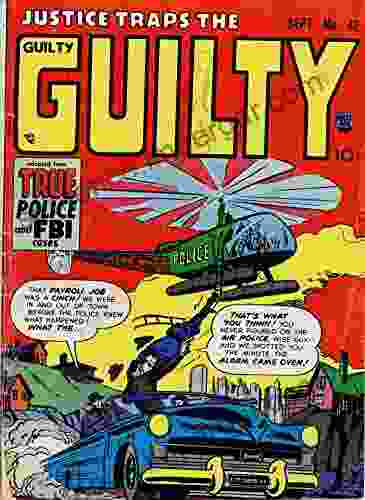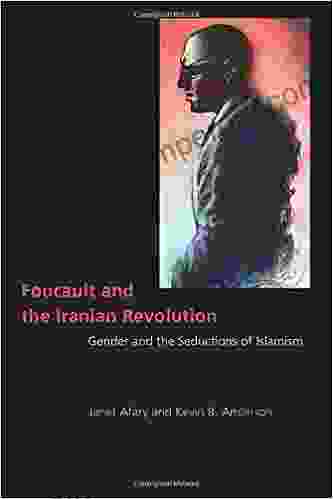Foucault and the Iranian Revolution: Unraveling Power, Resistance, and the Birth of a New Iran

4.1 out of 5
| Language | : | English |
| File size | : | 3261 KB |
| Text-to-Speech | : | Enabled |
| Word Wise | : | Enabled |
| Print length | : | 312 pages |
| Lending | : | Enabled |
The Iranian Revolution of 1978-79 stands as a pivotal moment in modern history, a transformative event that toppled a centuries-old monarchy and gave birth to a new Islamic republic. At the heart of this revolution lay a complex interplay of political, social, and religious factors, challenging the established Free Download and forever altering the course of Iran's destiny.
In the midst of this tumultuous period, the ideas of French philosopher Michel Foucault resonated deeply with Iranian intellectuals and activists. Foucault's groundbreaking work on power, discourse, and resistance offered a lens through which to understand the dynamics of the revolution, providing insights into the ways that power is exercised, contested, and ultimately transformed.
Foucault's Theories and the Iranian Revolution
Foucault's concept of power as diffuse and capillary, operating through a network of institutions, discourses, and practices, proved particularly relevant to the Iranian context. The Pahlavi regime had maintained its control through a complex system of surveillance, censorship, and political repression, effectively silencing dissent and maintaining its grip on society.
However, the revolution emerged as a collective resistance to this oppressive power structure. Foucault's theories helped to explain how individuals and groups can challenge and subvert power relations, even when faced with seemingly insurmountable obstacles. The protests and demonstrations that characterized the revolution became a form of "discursive resistance," a means of articulating alternative narratives and contesting the official discourse of the regime.
The Birth of a New Iranian Identity
Beyond its immediate political impact, the Iranian Revolution also triggered a profound transformation of Iranian society and identity. The overthrow of the monarchy and the establishment of an Islamic republic created a space for the articulation of new political, social, and cultural aspirations.
Foucault's work on the relationship between power and knowledge shed light on how the revolution gave rise to a new Iranian identity, shaped by the experiences of resistance, the rejection of Westernization, and the embrace of Islamic values. This new identity continues to define Iran's domestic and international politics today.
Foucault's Legacy in Iran
The influence of Foucault's ideas in post-revolutionary Iran has been profound and enduring. His work has inspired generations of Iranian intellectuals, scholars, and activists, who have employed his analytical tools to understand and challenge power relations in various spheres of Iranian society.
From political movements to cultural studies, Foucault's theories have provided a framework for analyzing the complex dynamics of Iranian society, its struggles for democracy, and its ongoing search for a distinctive identity in the modern world.
The Iranian Revolution stands as a testament to the power of resistance, the transformative potential of collective action, and the enduring legacy of Michel Foucault's ideas. His work provides a valuable lens through which to understand the complexities of social and political change, and its relevance continues to resonate in Iran and beyond.
4.1 out of 5
| Language | : | English |
| File size | : | 3261 KB |
| Text-to-Speech | : | Enabled |
| Word Wise | : | Enabled |
| Print length | : | 312 pages |
| Lending | : | Enabled |
Do you want to contribute by writing guest posts on this blog?
Please contact us and send us a resume of previous articles that you have written.
 Book
Book Novel
Novel Page
Page Chapter
Chapter Text
Text Story
Story Genre
Genre Reader
Reader Library
Library Paperback
Paperback E-book
E-book Magazine
Magazine Newspaper
Newspaper Paragraph
Paragraph Sentence
Sentence Bookmark
Bookmark Shelf
Shelf Glossary
Glossary Bibliography
Bibliography Foreword
Foreword Preface
Preface Synopsis
Synopsis Annotation
Annotation Footnote
Footnote Manuscript
Manuscript Scroll
Scroll Codex
Codex Tome
Tome Bestseller
Bestseller Classics
Classics Library card
Library card Narrative
Narrative Biography
Biography Autobiography
Autobiography Memoir
Memoir Reference
Reference Encyclopedia
Encyclopedia James P Lantolf
James P Lantolf Jay M Templin
Jay M Templin Jan Tregidgo
Jan Tregidgo James Rankin
James Rankin Janice Harper
Janice Harper Jason M Newell
Jason M Newell James Backhouse Walker
James Backhouse Walker Jason Gray
Jason Gray Jay Liebowitz
Jay Liebowitz James L Brewster
James L Brewster James P Caher
James P Caher James B Hale
James B Hale Jamie A Gruman
Jamie A Gruman Janet Fizz Curtis
Janet Fizz Curtis James Stewart
James Stewart Jason Reza Jorjani
Jason Reza Jorjani Jane Thurnell Read
Jane Thurnell Read Jeff A Menges
Jeff A Menges James Curcio
James Curcio Jeannette Swist
Jeannette Swist
Light bulbAdvertise smarter! Our strategic ad space ensures maximum exposure. Reserve your spot today!

 Miguel de CervantesShoot Out At Sadie Saloon: A Western Adventure Novel That Will Keep You On...
Miguel de CervantesShoot Out At Sadie Saloon: A Western Adventure Novel That Will Keep You On...
 Edmund HayesUnveiling the Brassey's Air Combat Reader: A Comprehensive Guide to Aerial...
Edmund HayesUnveiling the Brassey's Air Combat Reader: A Comprehensive Guide to Aerial...
 Samuel WardJustice Traps the Guilty V5.12.42: A Literary Masterpiece that Explores the...
Samuel WardJustice Traps the Guilty V5.12.42: A Literary Masterpiece that Explores the... Richard AdamsFollow ·13.6k
Richard AdamsFollow ·13.6k Gabriel BlairFollow ·11.2k
Gabriel BlairFollow ·11.2k Foster HayesFollow ·13.5k
Foster HayesFollow ·13.5k Spencer PowellFollow ·13.3k
Spencer PowellFollow ·13.3k Albert CamusFollow ·4.7k
Albert CamusFollow ·4.7k Floyd PowellFollow ·8.8k
Floyd PowellFollow ·8.8k Jesse BellFollow ·6.5k
Jesse BellFollow ·6.5k Holden BellFollow ·16.8k
Holden BellFollow ·16.8k

 Jacob Foster
Jacob FosterPrinciples and Persons: The Legacy of Derek Parfit
Derek Parfit's 1984 book,...

 Leo Mitchell
Leo MitchellPartners For Life: Raise Support For Your Missionary Work...
Are you a missionary or ministry leader...

 Blake Kennedy
Blake KennedyOn Desperate Ground: A Gripping Account of World War II's...
Hampton Sides' "On...

 Duane Kelly
Duane KellyCriminal Minds Sociopaths Serial Killers And Other...
In the realm of criminology,...

 Craig Blair
Craig BlairHome Repair: The Ultimate Guide to Fix, Maintain, and...
Welcome to the...

 Elmer Powell
Elmer PowellThe Organic Grower Guide to Mycorrhizae Science for...
Unlock the Secrets of Soil...
4.1 out of 5
| Language | : | English |
| File size | : | 3261 KB |
| Text-to-Speech | : | Enabled |
| Word Wise | : | Enabled |
| Print length | : | 312 pages |
| Lending | : | Enabled |






